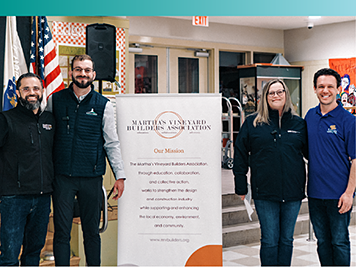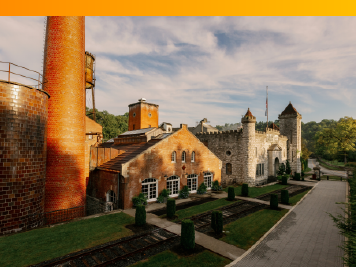Early on Sunday, June 11, 2023, a gas tanker exiting interstate 95 in northeast Philadelphia overturned while crossing under the freeway and burst into flames.
The accident claimed the life of the driver, Nathan Moody, and the 8,500 gallons of gasoline being carried burned so hot that a section of the interstate collapsed.
Miraculously, no other vehicles were involved in the crash and no one else was hurt. However, one of the busiest stretches of highway in the country, traveled by some 160,000 vehicles per day, had to be closed immediately and indefinitely.
In the days following the crash, experts predicted the raised roadway would be out for months, at least. The New York Times reported that a similar collapse in Atlanta in 2017 had required “44 days of uninterrupted work to finish the repairs.” Pennsylvania Governor Josh Shapiro warned the public that reopening lanes could take “some number of months.”
Instead, thanks to the ingenuity and 24-hour hustle of a few family-owned construction companies, the interstate reopened in an astonishingly quick 12 days.
Laying the groundwork
Within two hours of the crash, Rob Buckley Jr. was on site. Buckley is the third-generation owner and president of Buckley & Company, a highway and bridge contractor that’s been at work in Philadelphia since 1928. What Buckley’s grandfather originally launched as a trucking business has grown into a robust construction company capable of taking on all manner of public projects.
Whether a tire fire, a toxic spill, or 40 million gallons of muddy floodwater that need to be pumped out of a downtown expressway after a hurricane—Buckley & Co. has it handled. With 100 employees and a fleet of heavy construction machinery, Buckley & Co. works with Graham Company, recently acquired by Marsh McLennan Agency, to provide their risk mitigation strategies.
“Over the years, we’ve had to shift gears many, many times,” explains Buckley, who’s worked in the family business for 48 of his 65 years.
But thanks to decades of taking on every challenge that came their way, Buckley & Co. is one of the only contractors in the state approved for any job issued by PennDOT, the Pennsylvania Department of Transportation.
A piece of paper and a plan
It was early Sunday morning when Buckley got the call from a chief PennDOT engineer. Calls like this weren’t unusual, but they were always urgent.
“In this line of work, you’ve got to be able to move quick on your feet,” Buckley says.
When Buckley arrived at the scene, the northbound bridge had already collapsed, and it was clear the southbound side was ready to come down. That debris would have to be cleared, and the resulting gap would need to be filled in and paved over, creating a temporary fix that would allow some lanes to open while permanent repairs were being completed in other areas.
Had it not been an emergency, Buckley estimates the planning, demolition, and replacement would take about two years, beginning with a lengthy design process. In this case, they applied decades of experience to work up a solution in minutes, with Buckley sketching out a simple plan on a single piece of ruled paper.
Buckley took the lead on bringing his sketch to life, directing resources from less critical job sites, and recruiting workers to rotate shifts around the clock until the work was done. Buckley himself would practically live at the site for nearly two weeks.
Though the project got off the ground quickly, the people of Philadelphia could rest assured knowing that safety was a top concern. Over the course of their decades-long business relationship, Buckley and Graham have developed a comprehensive safety culture that allows for the successful navigation of complex, fast-paced projects. The broker has reinforced the construction company’s commitment to safety by updating its safety program, advising on OSHA inspections, and delivering specialized training on crucial industry-specific topics.
“We were constantly available on the ground and provided around the clock service to support the project’s success,” says Durrell Garman, CHST, vice president safety services, Graham Company.
Calling in reinforcements
In the short term, getting the freeway back online meant Buckley & Co. couldn’t rebuild the overpass as they normally would have—bolstered by engineered concrete slabs and structural steel. Instead, they put up 22-foot retaining walls where the overpass had been, filled the empty spaces between them, then paved over the top to reconnect the six lanes down the center of the highway—three northbound, three southbound.
But another piece of the puzzle had to fall into place before the project could be completed. Directly beneath the accident site were 1960s era sewer and utility lines, which were unlikely to withstand the weight of 10,000 cubic yards of filled-in roadway, assuming it was built with conventional filler materials.
Fortunately, they happened to know of another business that might be able to help.
Buckley wasn’t the only Graham client tapped to help that Sunday. Archie Filshill answered the call just as he was getting an early jump on traffic from the Jersey Shore back to Philadelphia.
Filshill, who earned a Ph.D. in civil engineering, is CEO of AeroAggregates of North America, which is based in Eddystone, Pennsylvania. Eddystone is about 24 miles down the Delaware River from the crash site, making Filshill one of the unlucky commuters affected by the broken highway.
He founded AeroAggregates in 2015 and established the Pennsylvania plant to manufacture a foam glass aggregate from recycled glass bottles. Though it sounds simultaneously brittle and soft, foam glass aggregate is durable enough to use in infrastructure construction projects. It provides an alternative to the fill often used in such projects, which is made from crushed stone, sand, and gravel, and typically weighs 120 pounds per cubic foot. By contrast, foam glass aggregate weighs in at just 25 pounds per cubic foot.
“They’ve been doing foam glass for 20, 30 years in Europe. We’re just the first to bring it to the States,” says Filshill.



